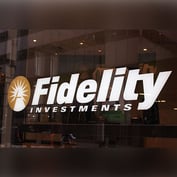What You Need to Know
- The agency received hundreds of responses to its call for input on climate change disclosure rules.
- Most of the comments, including those from major asset managers, appeared to favor new disclosure requirements.
- Morningstar suggested that SEC also consider how fund companies approach carbon and climate risk.
The SEC has received hundreds of public comments in response to its request for input on how the commission can best regulate climate change disclosures of companies.
Most of the comments appear to support disclosure of climate change risk for reporting companies, which — combined with the agency’s creation of a Climate and ESG Task Force in its Division of Enforcement, climate change disclosure priority in its Division of Examinations and staff review of its 2010 disclosure guidance for climate change — positions the agency to adopt new disclosure rules on climate change.
“I wouldn’t be shocked if the SEC proposed a rule this year … and had a final rule in 2022,” said Aron Szapiro, head of policy research at Morningstar. Litigation is likely to follow so a final rule won’t be forthcoming until the end of 2022 or 2023, according to Szapiro, who added that even that time frame would be faster than normal.
Respondents to the SEC’s call for input on new climate disclosure regulations include the world’s two largest asset managers, BlackRock and Vanguard, along with another asset managers; business trade groups such as the Securities Industry and Financial Markets Association’s Asset Management Group (AMG) and the American Petroleum Institute; environmental groups, public policy groups; and research organizations like Morningstar.
Those supporting a new SEC rule on climate change disclosure agreed on many key components:
- Materiality. Companies should disclose climate change-related information that is considered material, which the SEC and the Supreme Court have defined as information that would cause a rational investor to alter their investment decisions.
- Principle-based disclosure. This provides companies the flexibility to disclose for material climate-related factors rather than a “‘check the box’ approach of merely disclosing required metrics and boilerplate risk factors,” according to SIFMA.
- Greenhouse gases. Companies should disclose Scope 1 and Scope 2 emissions, which cover, respectively, direct emissions from a company and indirect emissions from the generation of purchased electricity, steam, heating and cooling consumed by a reporting company. Some respondents, like Calvert, which specializes in sustainable investment, would require disclosure of Scope 3 emissions, which are indirect emissions within a company’s value chain. T. Rowe Price favors such disclosure when material.
- Annual disclosure of climate-related material including companies’ annual 10-K filing with the SEC.
- Explanation of quantitative metrics used by companies to measure their exposure to climate change risk.
- Alignment with current frameworks from the Sustainability Accounting Standards Board (SASB) and Climate-Related Financial Disclosures (TCFD) principle.
- Coordination and consistency with global disclosure frameworks. Morningstar favors universal minimum disclosure requirements that allow consistent benchmarking across industries and sectors managing climate risk.
Other Comments
In addition, some respondents, including Invesco and Calvert, favored disclosure of climate change risk as part of a broader disclosure framework that includes other environmental issues along with social and governance factors.
BlackRock, T. Rowe Price and Invesco recommended the SEC disclosure rule include private companies as well as public companies to avoid regulatory arbitrage. T. Rowe noted that the SEC already requires 10-K reporting for private companies with more than $10 million in total assets and 2,000 shareholders of record or 500 shareholders who are not accredited.









 June 21, 2021 at 04:39 PM
June 21, 2021 at 04:39 PM











